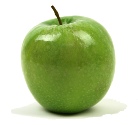



Helping you make healthy choices for you and your family

"The alarming fact is that foods (fruits, vegetables and grains) now being raised on millions of acres of land that no longer contain enough of certain minerals are starving us - no matter how much of them we eat. No man today can eat enough fruits and vegetables to supply his system with the minerals he requires for perfect health because his stomach isn't big enough to hold them " Senate Document No. 264.
This statement was read out in the US Senate in 1936. That was almost 80 years ago!
"Soil depletion levels of minerals in Europe now at 72%, over the last 100 years" 1992 Earth Summit Report.
Over a decade on and the situation is no better.
This statement was read out in the US Senate in 1936. That was almost 80 years ago!
"Soil depletion levels of minerals in Europe now at 72%, over the last 100 years" 1992 Earth Summit Report.
Over a decade on and the situation is no better.

According to a study comparing data from The Medical Research Council (1940) with data from the Royal Society of Chemistry and M.A.F.F. (1991), up to 75% less calcium and 93% less copper were found in fruit and vegetables compared with fifty years before. Runner beans, which used to contain a significant amount of sodium have almost no trace of it at all. Spinach has 60% less iron and carrots have 75% less magnesium. The levels of other vital minerals have also plummeted. (Source: The Nutrition Practitioner, Vol 3 Issue 2 (July 2001) and The Daily Mail (Monday March 5th, 2001)).
If you look at the table below, you will see that meat and milk have also been affected, showing a worrying decline in the levels of iron.
If you look at the table below, you will see that meat and milk have also been affected, showing a worrying decline in the levels of iron.

Decline in the mineral content of food since 1940
Source: Dr. D.E. Thomas
Source: Dr. D.E. Thomas
So, how has this happened? The reason is economic. Modern methods of agriculture have stripped the average diet of essential nutrients. For today’s farmers to grow bumper crops of produce, their use of artificial fertilisers merely improves the appearance and increases the size of their yield. But an abundant harvest fails to compensate for nutrient depleted food.
To make matters worse, the use of chemical pesticides, and picking the crops before they are ripe, then storing or transporting them for long periods of time, reduces their nutrient content even more.
Researchers have observed that trace and essential minerals are needed to properly maintain the systems of the body and are vital for life. They have also made numerous discoveries linking mineral deficiencies to diseases such as osteoporosis, heart and liver disease, anaemia, birth defects, hyperactivity disorders, arthritis, chronic fatigue syndrome (ME) and even cancer. Therefore a diet lacking in essential and trace minerals is more likely to lead to poor health.
To make matters worse, the use of chemical pesticides, and picking the crops before they are ripe, then storing or transporting them for long periods of time, reduces their nutrient content even more.
Researchers have observed that trace and essential minerals are needed to properly maintain the systems of the body and are vital for life. They have also made numerous discoveries linking mineral deficiencies to diseases such as osteoporosis, heart and liver disease, anaemia, birth defects, hyperactivity disorders, arthritis, chronic fatigue syndrome (ME) and even cancer. Therefore a diet lacking in essential and trace minerals is more likely to lead to poor health.
So what is the answer?
Without the availability of these essential vitamins and minerals in our diet, we believe the only answer is to supplement.
Doctors practicing in Nutrition recommend taking a multivitamin and multimineral supplement each day which provides the daily values of all essential vitamins and minerals. Supplementation is especially important if you are restricting your food intake whilst on a weight loss diet or increasing your exercise.
But which product do you choose?
Many supplements contain inorganic metallic minerals of which only 10 – 12% may be absorbed into the body. This can reduce to only 3 – 5% in people over 40 years of age (Tonita d'Raye, 1998). They can also be toxic, and dangerous levels of these metallic minerals can accumulate in the tissues and create serious health problems.
Chelated minerals are an improvement on metallic minerals, with an estimated 48% absorption and organic colloidal minerals, derived from plants, are considered to give better absorption than chelated minerals.
Doctors practicing in Nutrition recommend taking a multivitamin and multimineral supplement each day which provides the daily values of all essential vitamins and minerals. Supplementation is especially important if you are restricting your food intake whilst on a weight loss diet or increasing your exercise.
But which product do you choose?
Many supplements contain inorganic metallic minerals of which only 10 – 12% may be absorbed into the body. This can reduce to only 3 – 5% in people over 40 years of age (Tonita d'Raye, 1998). They can also be toxic, and dangerous levels of these metallic minerals can accumulate in the tissues and create serious health problems.
Chelated minerals are an improvement on metallic minerals, with an estimated 48% absorption and organic colloidal minerals, derived from plants, are considered to give better absorption than chelated minerals.
Nutritional State of our Food
However, colloidal minerals are still too large for easy absorption and it has been found that a micro-colloidal solution containing minute, ionised minerals offers the best bio-availability at up to 98% absorption. Choose one which contains trace minerals such as selenium and chromium, as well as the larger minerals such as calcium and magnesium.

Other nutritional supplements may also be helpful in supporting the body for general health.
A probiotic formula - Choose one containing billions of “good” bacteria such as Lactobacillus Acidophilus and Bifidus in capsules. This helps to re-populate the bowel with helpful bacteria. These bacteria are needed to aid digestion and produce B vitamins in your intestines which are vital for cardiovascular and immune system function. By keeping the beneficial bacteria topped up, the harmful bacteria, fungi and yeasts will be unable to take over and interfere with digestion.
Vitamin D3 - Choose a capsule or liquid for maximum absorption. The majority of the population is estimated to be deficient in Vitamin D. A deficiency is implicated in at least 17 varieties of cancer, as well as heart disease, stroke, hypertension, autoimmune diseases, diabetes, depression, chronic pain, osteoarthritis, osteoporosis, muscle weakness, muscle wasting, birth defects, periodontal disease, and more.
Vitamin D3 supplements are especially needed during the winter months when it is impossible to make sufficient Vitamin D from exposure to the sun, especially if you live north of Spain. Between 2000 and 5000iu is recommended between September and April. Avoid taking D2 as this is much less effective. A blood test, called 25 Hydroxyvitamin D, is also recommended to check your Vitamin D levels.
Omega 3 and Omega 6 Essential Fatty Acids - Choose a formula derived from plant oil combinations such as organic Coconut, Flax Seed, Safflower, Evening Primrose, Sunflower and Pumpkin Seed oils. Our body uses the oils in this primary form of Omega 3 and Omega 6 essential fatty acids to convert them to the derivatives of EPA (Eicosapentanoeic acid) and DHA (Docosahexaenoic acid) in the amount that the body needs. Fish and Krill oils also contain EPA and DHA but there is a danger of ingesting too high a dose which can be detrimental to the body, especially the brain.
People over 40 years
Co-Enzyme Q10 - This is helpful in replacing the natural levels lost through ageing. CoQ10 provides energy to every cell, especially muscle cells such as the heart. It is available in two forms - ubiquinone and ubiquinol. Ubiquinol is recommended for people over 40 as it is easier for the body to process than ubiquinone. Dosages between 50mg and 100mg a day are regarded as safe and effective.
Please Note: These suggestions should not be regarded as medical advice and if you have any concern about taking them, you should discuss this with your GP.
Please Note: These suggestions should not be regarded as medical advice and if you have any concern about taking them, you should discuss this with your GP.

| Your Health Your Future |
| Controversial Ingredients |
| Nutritional State |
| Parent and Child |
| Microwave Ovens |
| Recommended Books |
| Skin Absorption |
| Sodium Lauryl Sulphate |
| Propylene Glycol |
| DEA, MEA, TEA |
| Chemical Calculator |
| Fluoride |
| Aspartame |
| Fluoridation |
| Water Filtration |
| Planning a Pregnancy |
| Pregnancy Care |
| Post Pregnancy Care |
| Amazon Books |
| EBooks |
| About Us |
| Health Services |
